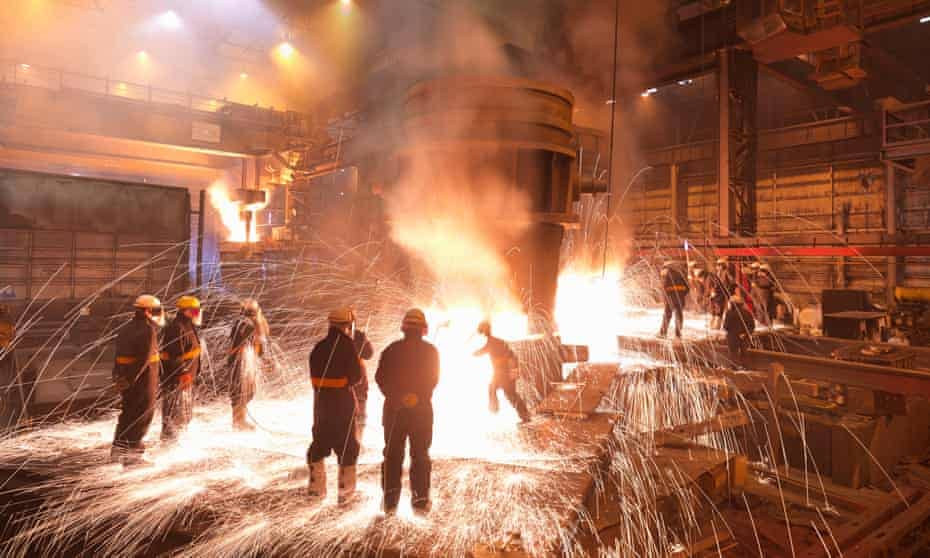The prime minister has been informed that thousands of jobs are at risk because the government failed to support the struggling UK steel industry in last week’s budget, Entrepreneurng report.
Unite’s general secretary, Sharon Graham, made the following remarks amid a global manufacturing recovery this year that could bypass the UK steel industry without much-needed investment: “It is your government’s official policy to grow foundation industries like steel, make them more competitive internationally, and secure more jobs in them throughout the UK, but there is no sign that this is happening.
In contrast, she continued, “the UK steel sector is decreasing, becoming less competitive, and losing skilled employment.
She applauded plans to invest £600 million in the sector to maintain the UK’s final four steel blast furnaces and a shift away from coal to energy sources with fewer emissions.
Even yet, she claimed that it was a far cry from the “billions of pounds” that France and Germany are reportedly offering their steelmakers. Together with moves to stop “profiteering” by energy companies, she also advocated for tighter regulations to ensure that more domestically manufactured steel was used in UK infrastructure.
“Think of the thousands of employees and their families in Wales, the Midlands, the northeast, and elsewhere who are at risk.”
Additionally, it poses a threat to the very soul of the neighborhoods that surround them. Also, it poses a risk to our nation’s security as well as the larger industrial and construction sectors, according to her.
Jonathan Reynolds, the shadow business secretary, stated that Labour will examine important infrastructure projects and pledged that a Labour administration would “purchase, make, and sell” more steel in Britain to protect thousands of jobs. The importance of steel to our economy is understood by labor, he continued.
Tata Steel, which runs both of the blast furnaces at Port Talbot, has frequently warned that if greater support isn’t given, it might have to close one or both of the furnaces.
The public, who want the government to invest in UK steel to sustain jobs and production, is overwhelmingly in favor of maintaining the British steel industry, according to a spokeswoman.
The government will promote domestic steel manufacturing, according to a statement made earlier this month by Kemi Badenoch, the secretary for business and commerce. Nevertheless, the budget did not include any specific initiatives.
“We have already taken action to safeguard the industry from unfair trade and ease the burden of energy costs, including £800 million in relief for electricity bills to the steel industry,” said a Department for Business, Energy, and Industrial Strategy spokesperson.”
This is in addition to several other competitive programs totaling more than £1 billion to assist initiatives to reduce emissions and improve energy efficiency.
Even while a crucial indicator of manufacturing conditions indicated an increase in orders and output during the fourth quarter of last year and into the beginning of 2023, concern over the health of the steel industry was growing.
From +5% to +21%, the output activity balance increased; any positive number denotes growth. According to the carefully observed annual study conducted by the trade association Make UK and the accounting firm BDO, domestic orders increased from 2% to 20% and exports from -6% to 12%.
Nonetheless, Make UK and BDO continue to forecast a 3.3% decline in the manufacturing sector this year.
Richard Austin, BDO’s head of manufacturing, said the government has done very little to “address the immediate concerns to UK manufacturers stemming from the severe burden of energy bills”.
In conclusion, one reason for the long-term decline in the British steel industry is the punishing energy costs, especially in the last year. The industry is also being challenged by the costly task of decarbonization and competition from imports.
Source: The guardian


